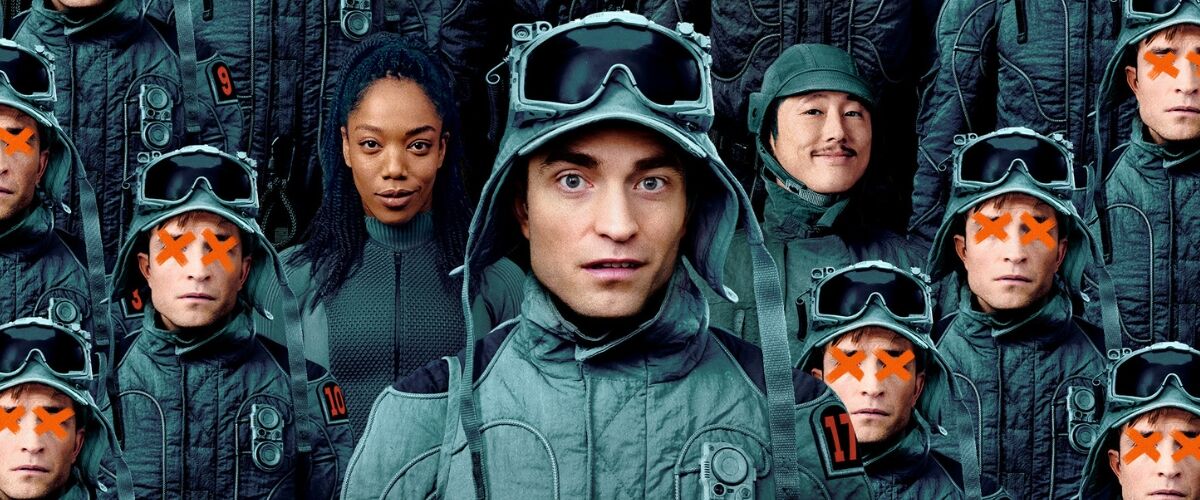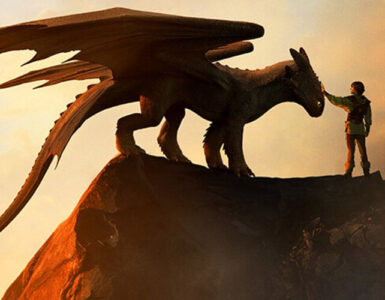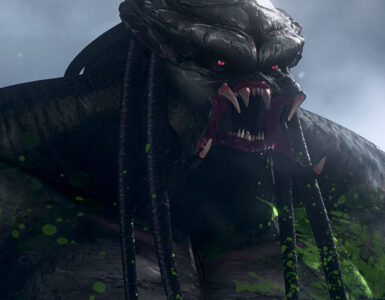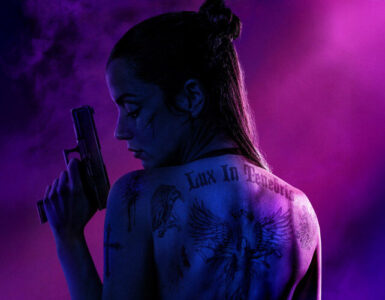Korean director Bong Joon-ho has spent decades refining his ability to smuggle sharp social critiques into the framework of genre films, and with a confidence that has made him one of the most distinctive filmmakers of his generation. Memories of Murder (2003) turned a true-crime mystery into a meditation on state failure; The Host (2006) buried ecological horror beneath family drama; Snowpiercer (2013) transformed class struggle into a high-speed dystopian allegory, and Parasite (2019) executed one of cinema’s most shocking tonal pivots to lay bare the cruelty of wealth disparity. For better and worse, the latter earned him four Academy Awards (Best Picture, Best Director, Best Original Screenplay and Best International Feature Film) and set an almost impossibly high bar for whatever came next thought how do you follow a film that reshaped the industry’s perception of international cinema?
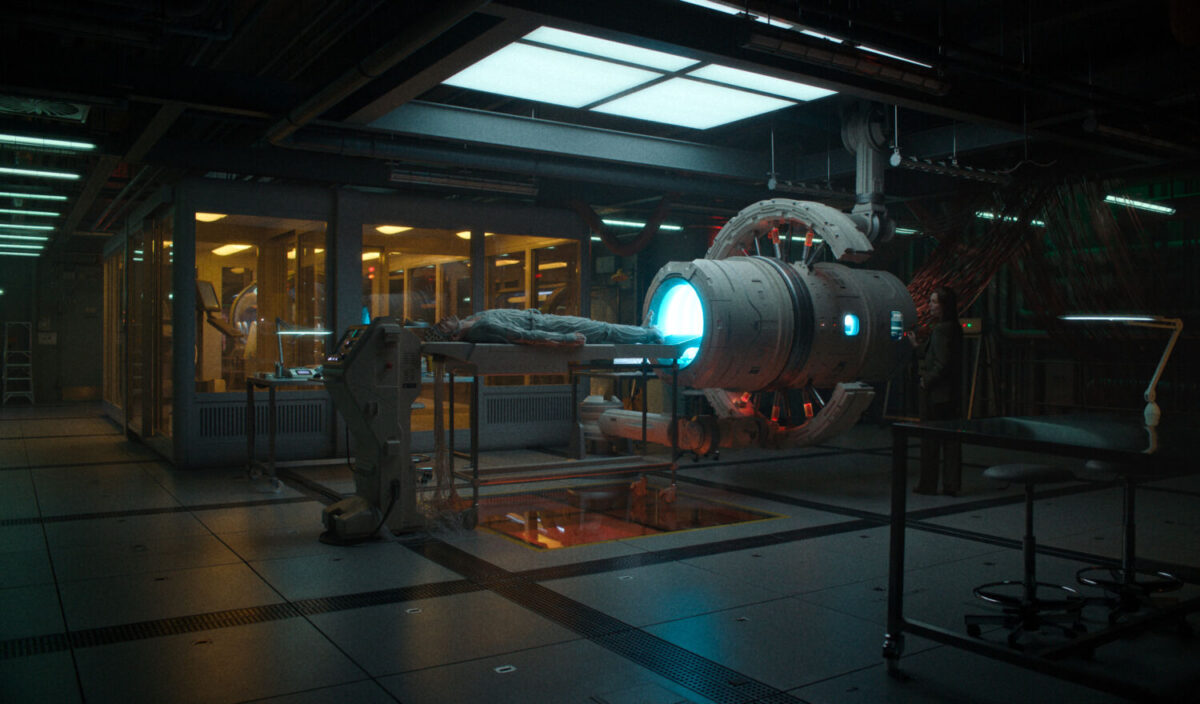
Bong’s answer, it turns out, is to leave Earth altogether. With Mickey 17, he turns his attention to the farthest reaches of space, adapting Edward Ashton’s 2022 science fiction novel Mickey7 into a film that blends sci-fi and dark comedy. Mickey 17 follows Mickey Barnes (Robert Pattinson, The Batman, The Lighthouse), an ‘expendable’ on an interstellar colonisation mission to the ice planet Niflheim, whose job is, quite literally, to die. Whenever he perishes in the line of duty, whether through radiation exposure, as a lab rat, or some other grim fate, his memories are uploaded into a newly cloned body from a 3D bioprinter, and the cycle begins again. The process is routine, clinical, and disturbingly efficient. But when Mickey discovers that his latest iteration isn’t the only one, the system that governs his existence begins to unravel, leading to existential crises, bureaucratic absurdities, and, inevitably, chaos.
The adaptation mostly retains the book’s plot beats, including its memorably cynical opening with Mickey 17, the latest iteration, plummeting into an icy ravine teeming with alien worms (called ‘creepers’, Niflheim’s native species). He barely has a chance to react before his shifty best friend and pilot, Timo (Steven Yeun, Beef, Minari), shrugs and leaves him to his fate. A fresh Mickey will be printed in the morning, after all. How he ended up on this doomed colony mission unfolds in a series of rapid-fire flashbacks, with Bong’s signature montage work speeding through exposition like a world-building sprint that leaves the first act feeling like a high-concept slideshow rather than an organic introduction. It’s never dull, with Bong keeping the tone consistently funny and packed with fascinating glimpses of its futuristic setting, but in its rush to establish the rules of its world, it occasionally stumbles in making them feel lived-in.
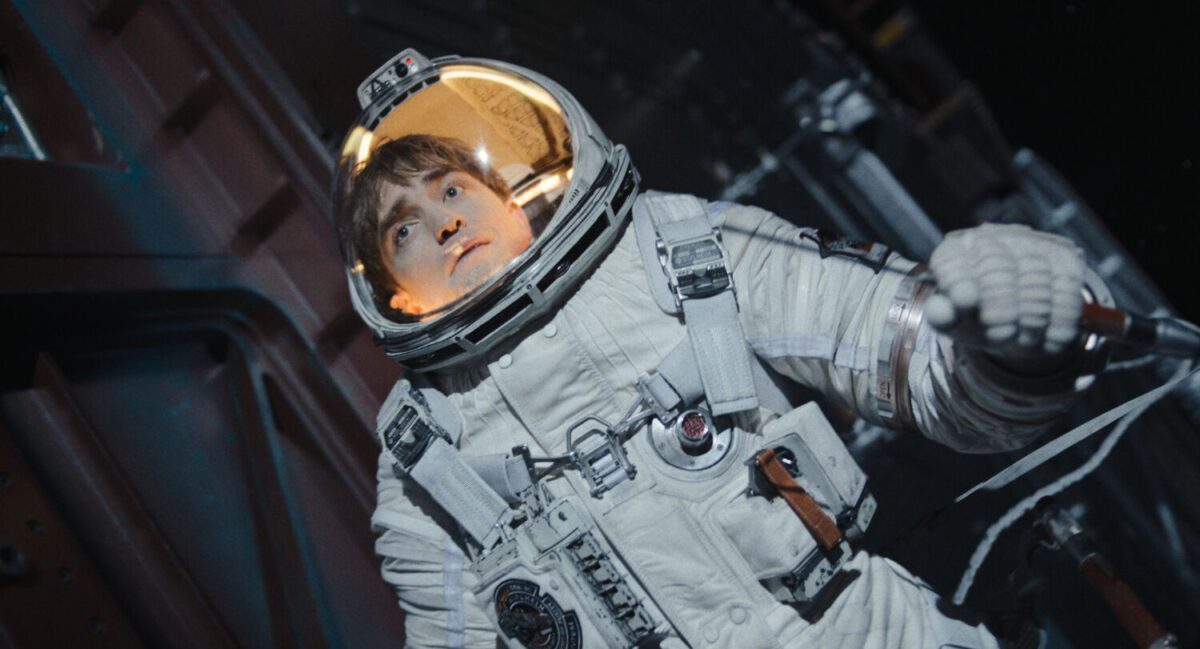
Pattinson brings an anxious, wide-eyed energy to Mickey Barnes, a man who needs to get off Earth fast after falling into debt with sadistic loan shark Darius Blank (Ian Hanmore, Game of Thrones). Overseeing this dystopian operation to Niflheim are egomaniacal politician Kenneth Marshall (Mark Ruffalo, Poor Things) and his wife Ylfa (Toni Collette, Hereditary), a duo as cartoonishly monstrous as they are politically astute. Their scenes bring to mind Tilda Swinton (Constantine) and Jake Gyllenhaal’s (Road House) grotesque corporate villains in Bong’s very own Okja (2017), all flamboyant posturing and performative benevolence masking sheer contempt for those beneath them. Bong’s point is clear: reality is already absurd, and no amount of exaggeration can make it any less so.
Mickey, meanwhile, clings to the only thing that makes his endless cycle bearable: his relationship with security officer Nasha Adjaya (Naomi Ackie, I Wanna Dance with Somebody), whose unhinged energy is both a source of comfort and chaos. Ackie injects the role with an unpredictable charm, making Nasha feel like the only genuinely alive presence in a world that treats existence as disposable. But things take a turn when Mickey 17 survives a mission he wasn’t supposed to, only to return home and find that Mickey 18 has already been printed in his absence.
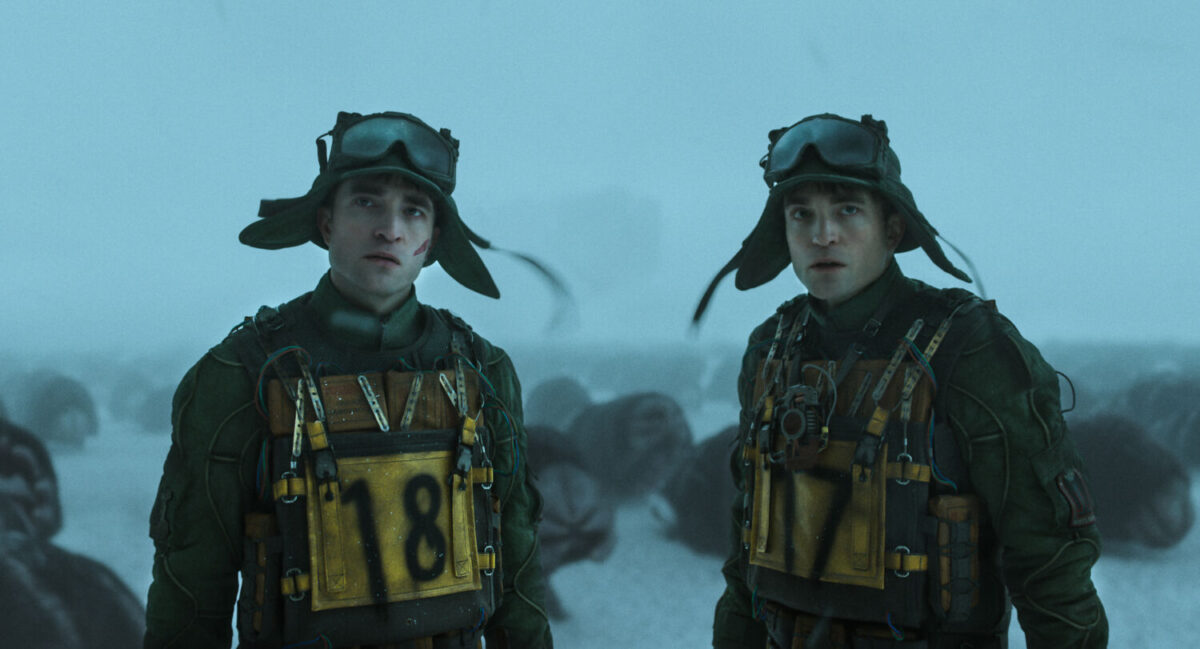
Mickey 17 and Mickey 18, identical in appearance but wildly different in personality, attempt to keep their dual existence a secret, though it’s only a matter of time before their cover is blown. If there were any doubts about Pattinson’s ability to play multiple versions of himself, this subplot eradicates them. He switches effortlessly between Mickey 17’s nervous, scrappy survivor energy and Mickey 18’s smug, almost cartoonishly malevolent cunning, making their growing conflict a darkly comedic game of cat and mouse. Pattinson, the willing punching bag, throws himself into the role(s) with an unselfconsciousness that makes Mickey’s plight equal parts pitiful and hilarious. His performance constantly undercuts any lingering heartthrob image Twilight (2008) fans may have of him, presenting a protagonist whose only talent seems to be surviving long enough to die again.
Once the colony catches wind of the duplicate situation, a flashback sequence reveals why this is such a serious problem: past incidents of multiple expendables existing at once have resulted in chaos, insurrection, and the execution of all involved. Bong plays this as part crime thriller, part sci-fi horror, pushing the absurdity of the premise while ensuring the existential dread never fades completely.
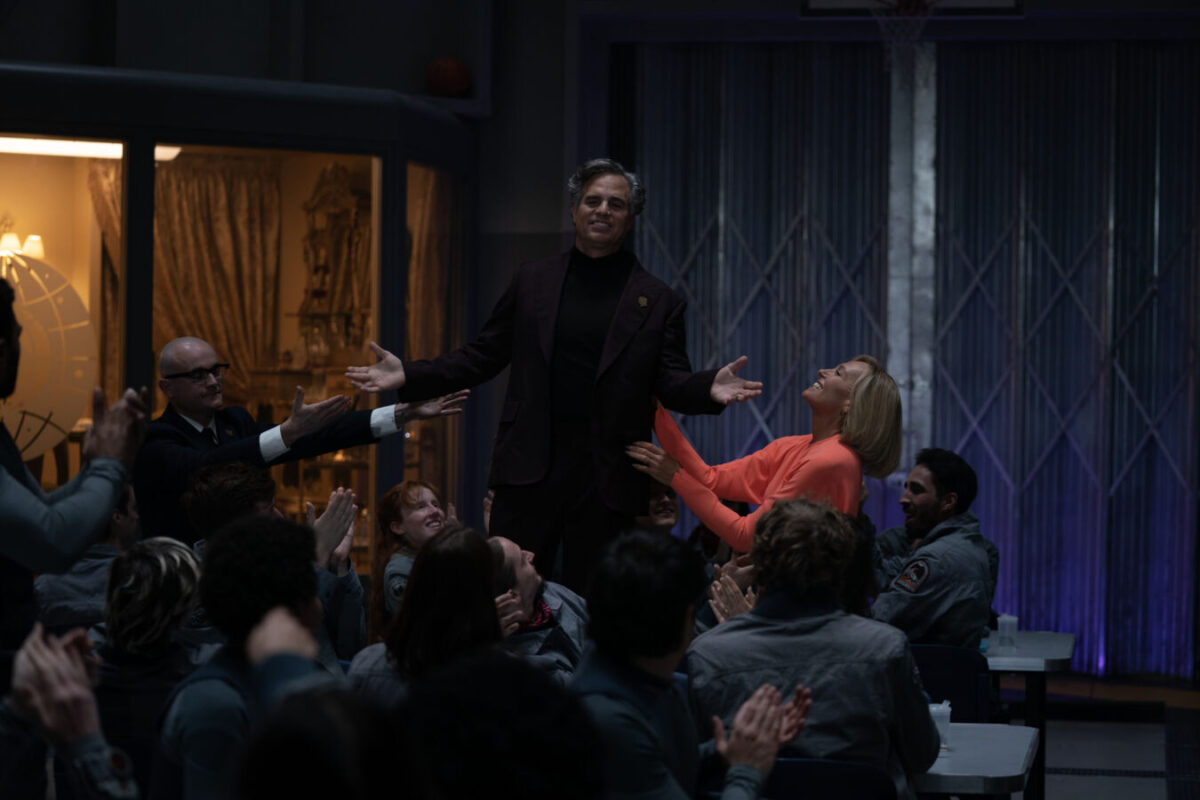
As entertaining as it is, this uneven and extended detour disrupts the film’s pacing, grinding the momentum to a halt just as the central conflict kicks into gear. Marshall, having fully embraced his role as both dictator and showman, hosts his own version of a Tonight Show, broadcasting propaganda in fascist regalia to annihilate the ‘creepers’, which he frames as a grand act of conquest. However, Mickey discovers the truth: the ‘creepers’ are neither hostile nor dangerous, as one even saves his life. As the film barrels toward its climax, the stakes are clear: Mickey must fight not only for his own survival, but for the future of the colony, the fate of the ‘creepers’, and the very notion of what it means to be human. But with so much ground to cover, the ending feels more like a series of ideas in competition rather than a singular, cohesive conclusion that is drawn out for longer than it needs to.
This thematic overload is perhaps intentional, as Bong pulls no punches in linking Marshall’s ideology to contemporary political movements, wrapping his fascistic fervour in rhetoric laced with white supremacy and patriarchal dogma. At one point, he selects individual colonists for private dinners, serving them steak, a stark contrast to their usual protein slop, and convincing them that their genetic purity is critical to ensuring Niflheim’s future through enforced reproduction. It’s a grotesque distortion of eugenics and nationalism, presented with an unsettlingly cheery veneer. In another one of the film’s most eerily timed moments, a failed assassination attempt leaves Marshall with a grazing bullet wound on his cheek, an accidental but uncanny reflection of recent real-world events.
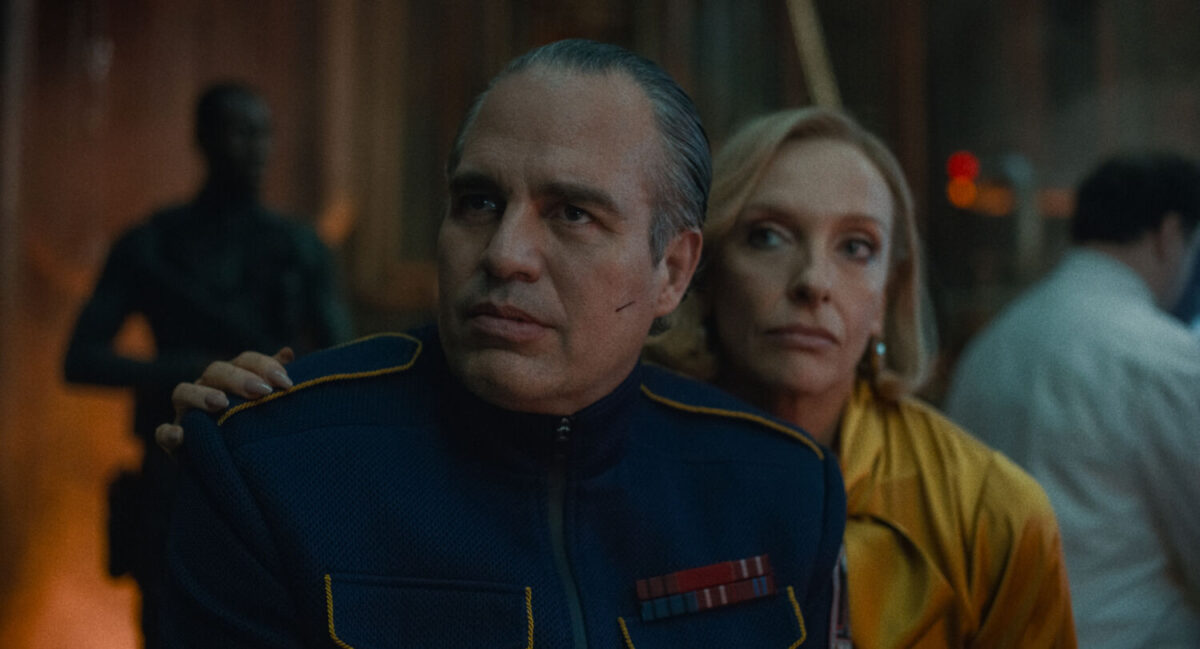
Released in the wake of a second Trump administration and the growing ambitions of billionaire space colonizers who think they should be in charge, Mickey 17 presents a world where unchecked power thrives and where something as basic as acknowledging another species’ right to exist becomes an act of rebellion. That’s where Bong’s greatest strength lies: not in offering easy answers, but in forcing us to reckon with the absurdity of our own reality.
But when all is said and done, it’s hard to shake the feeling that Mickey 17 is more interested in gesturing at big ideas than fully wrestling with them. It’s a film where chaos, slapstick, and political satire frequently stand in for emotional weight, leading to some of the most ludicrously bleak comedy this side of the last U.S. election cycle. Rather than delivering a rousing call for resistance, Mickey 17 finds power in its own cynicism, reflecting the bleak absurdities of a world where humanity is both disposable and complicit in its own destruction.
GEEK REVIEW SCORE
Summary
At its best, Mickey 17 is a bleakly funny, visually inventive critique of power, greed, and the terrifying ease with which people become disposable. But its themes, much like its protagonist, often feel trapped in an endless loop: always repeating, never quite evolving.
Overall
7.6/10-
Story - 7/10
7/10
-
Direction - 7.5/10
7.5/10
-
Characterisation - 8.5/10
8.5/10
-
Geek Satisfaction - 7.5/10
7.5/10

